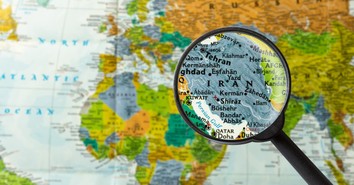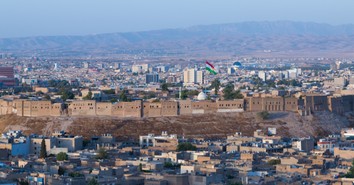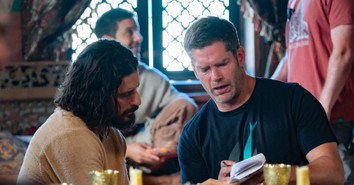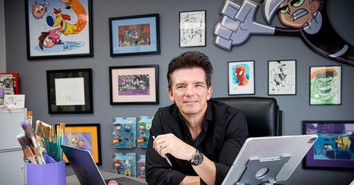How a Rabbi’s Faith in Jesus Helped Rescue Bulgaria’s Jewish Community
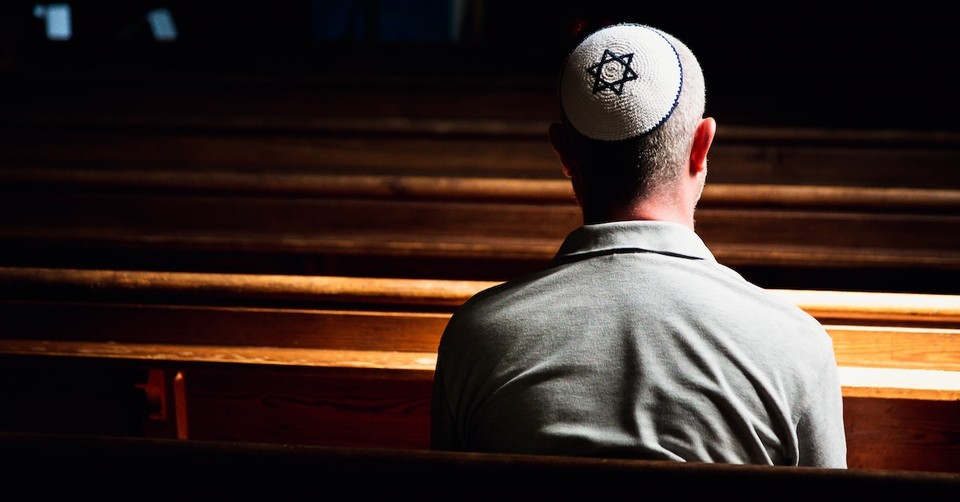
The incredible story of Rabbi Daniel Zion, who came to believe in Jesus before WWII, and Stefan of Sofia has been captured in the moving historical novel, Legacy of Hope: Hidden Heroes from Generation to Generation, co-authored by Avi Mizrachi and Kathi Macias. Rabbi Daniel and Stefan of Sofia, head of the Orthodox Church in Bulgaria, teamed up to protect the 50,000 Jews in Bulgaria during World War II. Not one was sent to the Nazi death camps. To learn more, visit legacyofhopebook.com.
Crosswalk: Where did the idea for your book, Legacy of Hope: Hidden Heroes from Generation to Generation, come from?
Avi Mizrachi: It started with a school project called “Roots.” Our kids had to interview their grandparents—most of whom had immigrated to Israel—about their backgrounds. My parents had never talked about their past, but when I brought my kids to them, they opened up and began sharing stories.
CW: How old was D’vora at the time?
Avi: She was 12-13 years old.
CW: Was it Devorah’s project specifically?
Avi: Devorah started, and later our other daughter, Sarah, had the same assignment. Each of my daughters did their own roots project, and with each one, we started to realize what a special story the survival of the Bulgarian Jewelry was.
CW: When did the research move beyond family stories?
Avi: About 10 years ago, I took our kids to Bulgaria. My mother had passed away, and my father couldn’t travel, but he gave us information. We visited synagogues and the old Jewish neighborhood. I’d never met my grandfather—he died in the Holocaust—so we asked the synagogue’s caretaker to check the records. He found the date of my grandfather’s death and where he was buried, then took us to the Jewish section of Sofia’s cemetery, where we found his grave. It was very moving. We also visited the beautiful Great Synagogue in Sofia and a nearby Jewish Museum, seeing that history stirred us to dig deeper.
CW: Is that when Devorah began formal research?
Avi: Yes. Devorah was finishing her master’s in Hebrew at the time. I said, “You’re good at research—how about I hire you to dig into the archives?” About ten years ago, she began in earnest. Her first product was an academic book in Hebrew, based on primary sources.
CW: How did the story of Rabbi Daniel Zion emerge?
Avi: We had family memories—my mother had been his secretary—but not the facts. Devorah searched government archives, the Hebrew University archives, and we worked with a Bulgarian Christian researcher who found documents and translated them into English. That’s when the full picture came together. Many previous articles were inaccurate, and some Orthodox circles had maligned Rabbi Daniel Zion as a “lunatic” or a traitor. The research let us correct the record with documented facts.
CW: You worked quietly for years—what happened once you went public?
Avi: We wrote for about eight years, keeping it quiet until publication. When the books came out, we experienced intense pushback and spiritual opposition. But God also opened doors—especially with Rabbi Daniel Zion’s family. We interviewed several grandchildren, and when we showed them the documented truth, many were moved to tears. They gathered the whole extended family, with all the children, grandchildren, and great-grandchildren. We met with them in a private home, only the family, but there were 30-40 of them. And we shared how he had suffered - beaten, sent to a work camp, almost dying - yet kept loving and serving his people. They almost started crying. And they said to us, “We didn't know all this. Thank you for bringing to the light about our grandfather.” Before this, Rabbi Zion had been made to look like a lunatic. That's why the family was always ashamed of their grandfather. But they didn't know the truth. And they encouraged us to share the book more openly with others in Israel.
CW: So the family encouraged a broader release?
Avi: Yes. They said people need to know how 50,000 Bulgarian Jews were rescued. Their support was pivotal.
CW: When did you officially launch the book?
Avi: We held a launch at Christ Church in Jerusalem in May 2024, near the Jaffa Gate. Over 100 people came—many not believers. We presented the research, honored Rabbi Daniel Zion and Metropolitan Stefan, and shared the facts. Two grandsons spoke; one said he’d been ashamed of his grandfather, but that night he became proud, even sharing a family story of miraculous healing through his grandfather’s prayer.
CW: After the launch, how did you distribute the book?
Avi: Secular Israeli bookstores weren’t eager to carry it because it speaks about Yeshua. So we sent Devorah’s research volume and my book to libraries and universities across Israel as historical resources. We also advertise in Hebrew via Shelanu TV and social media: Israelis can request a free Hebrew copy. We’ve sent 400+ books that way. In Hebrew, we use the book for outreach and often give it for free. The English edition (printed in the U.S.) is sold mainly to Christian audiences. Translations into German, Dutch, and Spanish are in progress.
CW: Are you planning a Bulgarian edition?
Avi: I want to—time has been the challenge. We’ve even spoken with the Bulgarian ambassador to Israel, who expressed support and interest in helping publicize it when it’s ready.
CW: Have you presented the story inside Israel since the war began?
Avi: Yes—about a year ago, we shared at a kibbutz near the Gaza envelope, invited by a grandson who had been at the Jerusalem launch. So many came we moved to a larger hall—nearly 250 people, mostly unbelievers. Many were deeply touched and bought Hebrew copies. We hope to do more after the war.
CW: What about in the United States—any opportunities with Jewish communities?
Avi: Not yet in the U.S. We did share the story five years ago, before the book was finished, in Budapest at an Orthodox synagogue. The rabbi—though not Messianic—invited us because he recognized Rabbi Daniel Zion’s role in saving Bulgaria’s Jews. The community responded very positively and questioned why Israel hadn’t honored him more fully.
CW: For readers unfamiliar with the core story, can you summarize Rabbi Daniel Zion and Metropolitan Stefan’s roles?
Avi: Before WWII, Rabbi Daniel Zion befriended Metropolitan Stefan of the Bulgarian Orthodox Church. Initially, Rabbi Zion rejected the New Testament, but after a powerful vision in prayer—he heard, “I am Yeshua, your Messiah”—he believed. He and Stefan agreed each would remain in his role—Rabbi Zion serving the Jewish community, Stefan leading the church—and they would stand together against Nazi plans. They wrote letters, met in Parliament, and warned King Boris that surrendering Bulgaria’s Jews would bring guilt upon the nation. There were three attempts to deport the Bulgarian Jewry during World War II, all three were canceled. The third time, the trains never came because the order for cancellation came. Through the courageous actions of leaders like Rabbi Daniel Zion and Metropolitan Stefan, approximately 50,000 Bulgarian Jews were saved.
CW: Looking ahead, what are your hopes for the book and this story?
Avi: To keep sharing how, in dark times, people of faith can stand against evil—by the word of their testimony, by the blood of the Lamb, and by being willing to lay down their lives. This is a story of Jews and Christians working together—the “one new man” of Ephesians 2. I hope for more doors in Israel, the U.S., and Europe, including a conference in the Netherlands on November 1. German partners are also planning events once the translation is ready.
Photo credit: ©GettyImages/coldsnowstorm
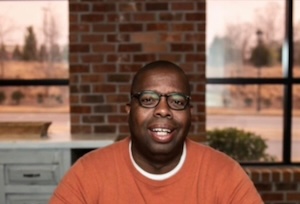
Originally published October 16, 2025.



